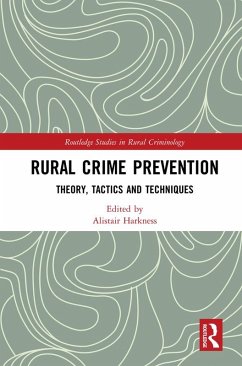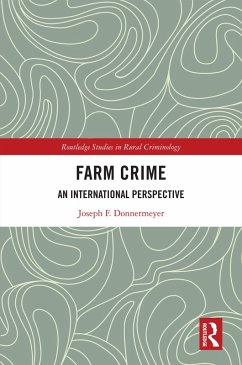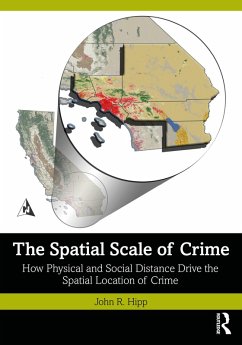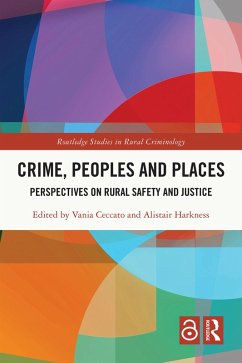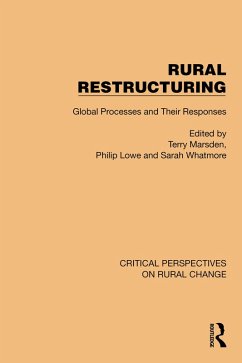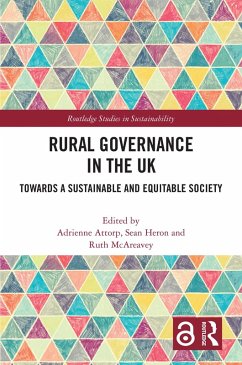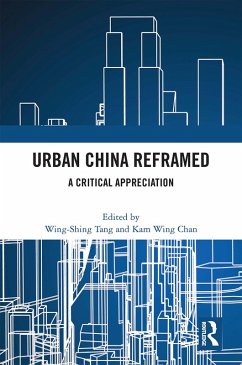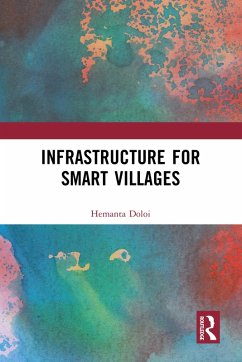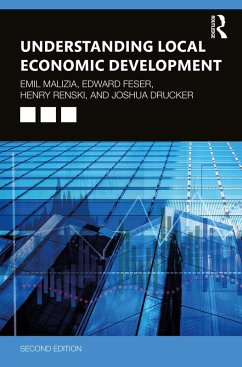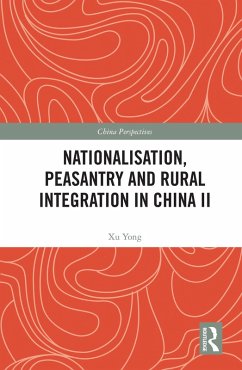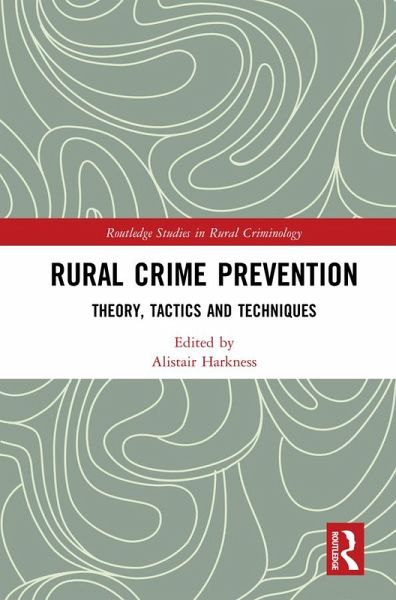
Rural Crime Prevention (eBook, ePUB)
Theory, Tactics and Techniques
Redaktion: Harkness, Alistair
Versandkostenfrei!
Sofort per Download lieferbar
41,95 €
inkl. MwSt.
Weitere Ausgaben:

PAYBACK Punkte
21 °P sammeln!
Rural crime has long been overlooked in the field of crime prevention. Sustained academic interrogation is necessary, therefore, to reduce the extensive economic and social costs of rural crime as well as to challenge some of the myths regarding the prevention of rural crime.Rural Crime Prevention: Theory, Tactics and Techniques critically analyses, challenges, considers and assesses a suite of crime prevention initiatives across an array of international contexts. This book recognises the diversity and distinct features of rural places and the ways that these elements impact on rates, experie...
Rural crime has long been overlooked in the field of crime prevention. Sustained academic interrogation is necessary, therefore, to reduce the extensive economic and social costs of rural crime as well as to challenge some of the myths regarding the prevention of rural crime.
Rural Crime Prevention: Theory, Tactics and Techniques critically analyses, challenges, considers and assesses a suite of crime prevention initiatives across an array of international contexts. This book recognises the diversity and distinct features of rural places and the ways that these elements impact on rates, experiences and responses. Crucially, Rural Crime Prevention also incorporates non-academic voices which are embedded throughout the book, linking theory and scholarship with practice.
Proactive responses to rural offending based on sound evidence can serve to facilitate feelings of safety and security throughout communities, enhance individual wellbeing and alleviate pressure on the overburdened and typically under-resourced formal elements of the criminal justice system. This book provides an opportunity to focus on the prevention of crime in regional, rural and remote parts of the globe.
An accessible and compelling read, this book will appeal to students and scholars of criminology, policing, sociology and practitioners interested in learning about the best-practice international approaches to rural crime prevention in the twenty-first century.
Rural Crime Prevention: Theory, Tactics and Techniques critically analyses, challenges, considers and assesses a suite of crime prevention initiatives across an array of international contexts. This book recognises the diversity and distinct features of rural places and the ways that these elements impact on rates, experiences and responses. Crucially, Rural Crime Prevention also incorporates non-academic voices which are embedded throughout the book, linking theory and scholarship with practice.
Proactive responses to rural offending based on sound evidence can serve to facilitate feelings of safety and security throughout communities, enhance individual wellbeing and alleviate pressure on the overburdened and typically under-resourced formal elements of the criminal justice system. This book provides an opportunity to focus on the prevention of crime in regional, rural and remote parts of the globe.
An accessible and compelling read, this book will appeal to students and scholars of criminology, policing, sociology and practitioners interested in learning about the best-practice international approaches to rural crime prevention in the twenty-first century.
Dieser Download kann aus rechtlichen Gründen nur mit Rechnungsadresse in A, B, BG, CY, CZ, D, DK, EW, E, FIN, F, GR, HR, H, IRL, I, LT, L, LR, M, NL, PL, P, R, S, SLO, SK ausgeliefert werden.




